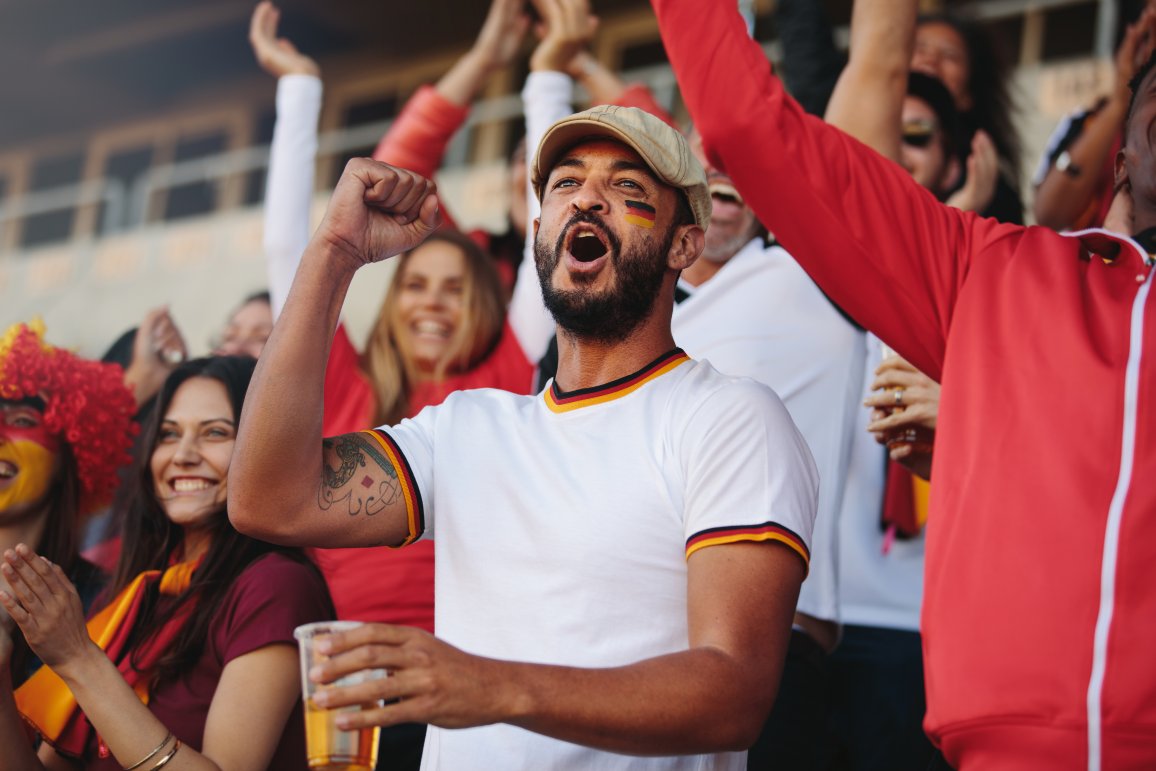Thanks to plastic cups: no offside for drinks
The European Football Championship is the third largest sporting event in the world. One challenge for the smooth running of the stadiums is the catering for the spectators. The organizers rely on plastic cups for drinks. And are thus also setting an example for safety at the football pitch around the corner.

No glass containers in the soccer stadium
Until July 14, 2024, 24 men's teams will compete for the European Championship title and the Henri Delaunay Cup, named after the former French footballer and General Secretary of the Union of European Football Associations (UEFA). A massive effort during the gigantic event: supplying the spectators, especially with drinks.
It is strictly forbidden for fans to bring bottles into the stadium where matches are being played. The safety risks are too great, especially with glass bottles, which can quickly break in crowded spectator areas - especially when emotions are running high. That's why plastic cups are used here - unlike glass containers, they don't break and can be easily recycled even after repeated use.
Glass bottles are also generally prohibited at fan zones and public viewing events due to the potential risk of injury from broken glass. Even at family soccer parties, parents in particular should prefer drinks in shatterproof plastic bottles to protect their children. And what applies to a European championship also applies to the football pitch around the corner.
Safety at home sports facilities too
David Schulz, sports scientist and board member of the Safety in Sport Foundation, says: “Drinks in simple glass bottles pose significant risks on sports fields. If they break, they can produce shards of glass that are difficult to see and collect. These shards pose a high risk of injury from cuts, not only for athletes, but also for spectators, especially children who might be running barefoot. In addition, shards of glass can be worked into the ground and pose long-term hazards”.
“Sports grounds are places, where people regularly come together to play sport ,” the expert continues, “and the safety of this environment ensures that every participant stays healthy and injuries are avoided.”
Plastic bottles as a safe alternative
David Schulz: “Provided they are disposed of properly, plastic bottles are a safe alternative to glass bottles. They do not break and do not produce any sharp shards, which significantly reduces the risk of injury. However, it is important that plastic bottles are disposed of correctly or ideally recycled to minimize environmental damage.”
In this way, plastic bottles make a significant contribution to safety and sustainability. In addition to their material robustness, they can be converted into new products or fresh energy after use by material or thermal processing. The also require less energy than glass bottles during production and transportation due to their low melting point and low weight. All in all, they are the ideal companions for exuberant fun without any piles of broken glass - neither in the large stadiums at the 2024 European Football Championships nor on the sports field next door.
Do you like our texts? Perhaps even so much that you want to use them in your own media? Then please get in touch with us beforehand!
